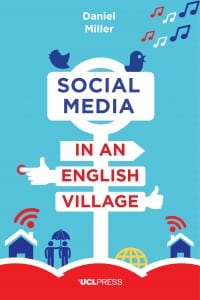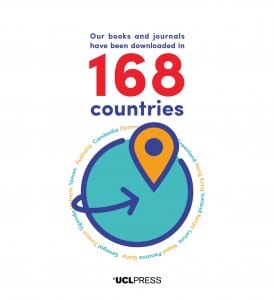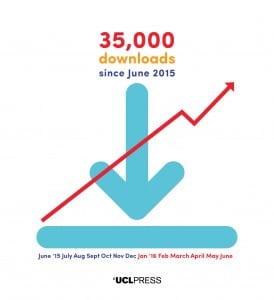Why one Early Career Researcher decided to publish in open access
By ucldnpi, on 15 June 2016
I’m delighted to be working with UCL Press on the publication of Four Histories about Early Dutch Football 1910–1920: Constructing Discourses. This work will use some of the research I conducted for my doctoral studies, combined with new research and approaches, to provide four new histories about football in Dutch life in the early part of the twentieth century. The work interweaves concerns about the role and purpose of history today, with questions about the nature of modern sport and its interaction with culture, politics, and society. A central aim of the book  is to promote a new form of history that acknowledges that the subjectivity of the author (and reader) is not only inevitable, but also useful in the development of history as a democratic tool for the future.
is to promote a new form of history that acknowledges that the subjectivity of the author (and reader) is not only inevitable, but also useful in the development of history as a democratic tool for the future.
I was particularly keen to work with UCL Press because of their commitment to Open Access publication, which I see as a revolutionary development in academic publishing. Free online publication means that my work and ideas will be available to as many people as possible, without the barriers often in palace in traditional academic publishing models. I’m pleased to be taking part at an early stage in this change in academic publishing. In addition, Open Access publishing has given me the opportunity to provide additional data and content online which will encourage other individuals to create their own histories about the past – which is a central theme of my work.
As a young academic, and first time author, I have loved the encouragement given by everyone at UCL Press in this project, from the initial proposal to the final stages of publication. At every stage the team has always been ready to listen to suggestions and to guide me through the difficulties and surprises involved in bringing my ideas to a wider audience. While the staff are UCL Press are ambitious in developing an ever increasing number of titles, I have always felt that the team has taken a hands on approach to the process and both understand and value the deeply personal nature of their authors’ contributions. Happy Birthday!
About the author
Nicholas Piercey is Honorary Research Associate in UCL’s Department of Dutch in the UCL School of European Languages, Culture & Society. His first book, Four Histories of Early Dutch Football, 1910-1920: Constructing Discourses (UCL Press) will be published on October 2016. Find out more at http://www.ucl.ac.uk/ucl-press/browse-books/four-histories-about-early-dutch-football.
 Close
Close







 Jewish Historical Studies: Transactions of the Jewish Historical Society of England is now jointly published with UCL Press. Why is this such excellent news and of historical significance in itself?
Jewish Historical Studies: Transactions of the Jewish Historical Society of England is now jointly published with UCL Press. Why is this such excellent news and of historical significance in itself?

 When UCL Press sent out its first, tentative call for proposals in early 2014 – a completely new university press operating a brave open access business model – I could not have been more surprised when Lisa Jardine emailed me, about ten minutes after the call went to all staff desks, to say she had a complete manuscript she wanted to publish with us. Of course, I was aware that the
When UCL Press sent out its first, tentative call for proposals in early 2014 – a completely new university press operating a brave open access business model – I could not have been more surprised when Lisa Jardine emailed me, about ten minutes after the call went to all staff desks, to say she had a complete manuscript she wanted to publish with us. Of course, I was aware that the